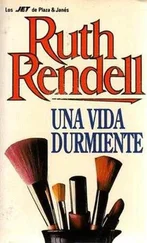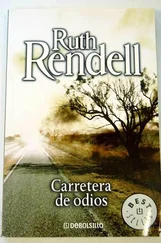“You lousy black bastard!” Jonathan turned his face into the sofa arm and his body shook. “God, I could do with a drink.”
Not at all put out by the offensive epithets, Winston said calmly, “I wonder how many thousand times the ears of these walls have heard those words?” He shook Jonathan vigorously. “Why I didn’t leave you on the steps of the nick for the dustmen to pick up I’ll never know. Get up, if you want that drink. But we’re not showing our faces in the Waterlily till all this fuss has died down.”
———
“They say,” said Barry, “as that bird as was done in lived in your house. Is that a fact?”
“Yes,” said Arthur.
“Only they don’t give you no number in the paper, just Trinity.” Barry spooned sugar from the basin into his mouth and crunched it. “Here,” he said, and thrust the Evening Standard under Arthur’s nose.
The body of a woman, Mrs. Vesta Kotowsky, 36, of Trinity Road, Kenbourne Vale, West London, was found in Oriel Mews, Kenbourne Vale, early this morning. She had been strangled. Police are treating the case as murder .
The print swam. Other words were superimposed on it. The body of a woman, Maureen Cowan, 24, of Parsloe Street, Kenbourne Vale, West London, was last night found in a footpath adjacent to Kenbourne Vale Cemetery. Police are treating the case … The body of a woman, Bridget O’Neill, 20, student nurse …
Strangers to him, utter strangers. He had never even looked into their faces. Had he ever looked into any woman’s face but Auntie Gracie’s and Beryl’s?
Beryl was Mrs. Courthope’s daughter. When he came home and found her there one evening, drinking tea with Auntie Gracie out of those china cups he now possessed and cherished, he had been jealous of her presence. Who was she to break in on their cloistered world? And she had been there again and again after that, sometimes with her mother, sometimes alone. It was better when her mother was there because then Auntie Gracie stayed in the room too instead of leaving Arthur and Beryl together. He had never known what to say when he was alone with Beryl, and now he couldn’t remember whether he had so much as uttered a word. He couldn’t remember whether Beryl was pretty or plain, talkative or silent, and he doubted whether he had known at the time. He was indifferent to her.
But she liked him, Auntie Gracie said.
“Beryl likes you very much, Arthur. Of course, that’s not surprising. You’re steady, you’ve got a good job, and though I shouldn’t tell you so, you’re a very nice-looking young man.”
Beryl started coming with them to the Odeon. Auntie Gracie always arranged it so that Beryl sat between them. He dared to say he had liked things better before they knew Beryl and had been alone together.
“There’s no reason why we should ever be apart, Arthur. This is a big house. I have always intended you to have the top floor to yourself one day.”
He didn’t know what she meant or why she was hoarding her clothes coupons or examining so closely the best of the linen she had kept packed away for so long or talking of furniture being so hard to get in this aftermath of wartime. He didn’t like being left with Beryl and talked about among Auntie Gracie’s particular friends as if Beryl were his particular friend.
The night it had happened was the night Auntie Gracie had such a bad headache she couldn’t face the Odeon and the film about American soldiers in the Pacific. Arthur said that in that case he wouldn’t go either.
“You must, Arthur. You can’t let Beryl down. She’s been looking forward to going out with you all the week. You don’t realise how fond of you she is. I know you’re fond of her too, only you’re shy. You haven’t been friendly with any other girls, I’m glad to say.”
Friendly … Beryl came to the house in Magdalen Hill and they set off together in silence. But when they had to cross the road she took his arm and held on to it all the way to the cinema. Her body was warm and clinging. Suddenly she began to talk. Her talk was madness. He thought she was mad.
“I’ve never had a boy friend before, Arthur. Mother wouldn’t let me go out with boys till you came along. I know I’m not very attractive, nothing special, but I could have had boy friends. Now I’m glad I waited. Mother’s told me, you see.”
He said hoarsely, “Told you what?”
“That you like me very much, only you’re too shy to say so. I like shy boys. I’ve been hoping and hoping for weeks you’d ask me to go out with you alone and now you have.”
“My aunt’s ill. That’s why she hasn’t come, because she’s ill.”
“Oh, Arthur . You don’t have to pretend any more. I know you’ve been trying to put her off coming with us for weeks and weeks.”
They went into the cinema. Sweets were just coming back into the shops. He bought her a bag of things called Raspberry Ruffles and muttered to her that he had to go to the gents. “I want to be excused,” was what he said like you said in school. There was an emergency exit between the foyer and the lavatory. Arthur walked straight out of it into the street. He walked and walked until he had put two miles between himself and Beryl, and then, for the first time in his life, he went into a pub. There he drank brandy because he didn’t know what else to order.
Soon after ten he left and began to walk home along the path that bordered the cemetery. There was a girl standing near the end of the path, and as he came up to her she said good evening. Later, he had learned she was a prostitute, waiting for the pubs to turn out, though at the time he had scarcely known of the existence of prostitutes.
He went up to her and put his hand into his pocket where he had stuffed his scarf. Perhaps she thought he was feeling for his wallet, for she moved towards him and put her hand on his arm. He strangled her then, and she was too surprised to struggle or cry out. Afterwards, when he understood what he had done, he knew he would be caught, tried, hanged—but nothing had happened. The police never came to the house in Magadalen Hill, and if they had they would have discovered nothing, for Beryl told neither his aunt nor her mother that he had left her alone in the Odeon. She gave them the impression that it was she who had jilted him, left him finally at eleven that night and never wanted to see him again. Auntie Gracie was hot against her for her ingratitude and her fickleness, and of course she understood why Arthur, disappointed in love, fell ill suddenly from some virus the doctors couldn’t diagnose and was off work for six weeks. He never saw Beryl again, though later he heard that she had married a greengrocer and had two children.…
“Reckon her old man done it,” said Barry.
Arthur couldn’t summon the energy necessary to rebuke Barry for this slangy, coarse, and ungrammatical usage. He digested the sense behind the words. They would suppose Kotowsky had done it. Glass, evidently, already supposed so. But Arthur was still unable to struggle out of the paralysis of fear in which he had been gripped since eight-thirty. Impossible to get over the fact—yet equally impossible to grasp the full significance of it—that he had not only killed a woman he knew but one who lived in the same house. Impossible too to forget or come to terms with another aspect. He had lied to Inspector Glass, that piranha-faced man, lied under the pressure of panic and forgetting that his lie could easily be detected. Anthony Johnson could show the police he had lied. Anthony Johnson, emerging from the lavatory at twenty to twelve, had seen him creeping up the stairs in the dark.
He could, of course, say he had merely been down to deposit rubbish in the dustbin. He? At that hour? In his overcoat? No, whatever he said, Anthony Johnson’s testimony would be enough to draw their attention to him. And naturally Anthony Johnson would tell them. By now they would know, would perhaps be waiting for him at 142 Trinity Road.
Читать дальше











